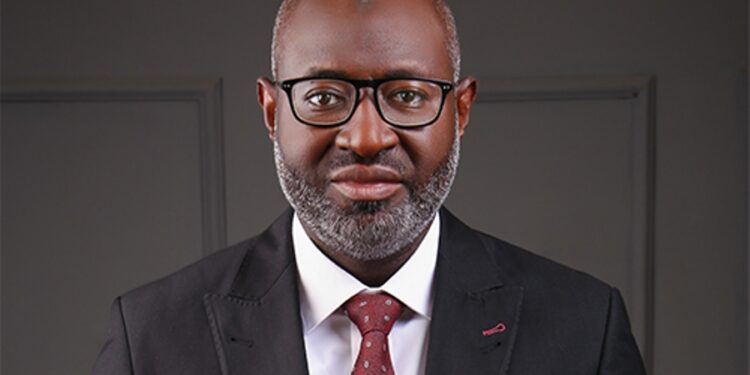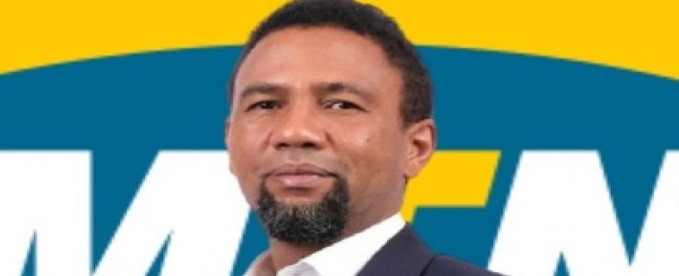Telecom
Aliyu Aboki Appointed to Global Submarine Cable Resilience Advisory Body

West Africa Telecommunications Regulators Assembly (WATRA) has announced that Mr. Aliyu Aboki, its executive secretary, has been appointed as a member of the International Advisory Body for Submarine Cable Resilience.

This body, established by the International Telecommunication Union (ITU) in collaboration with the International Cable Protection Committee (ICPC), aims to bolster the resilience of submarine telecommunication cables that form the backbone of global digital connectivity.
Submarine cables, which carry the majority of the world’s Internet traffic, enable essential global services, including commerce, financial transactions, government operations, digital health, and education. Enhancing their resilience is critical for ensuring continuity in a digitally connected world.
Mr. Aliyu Aboki’s inclusion in the high-level International Advisory Body for Submarine Cable Resilience comes at a critical time when disruptions to digital connectivity in West Africa have highlighted the urgent need to safeguard vital telecommunications infrastructure.
As the Executive Secretary of WATRA, Mr. Aboki brings a wealth of experience and a distinctive regional perspective to the Advisory Body’s mission.
His appointment provides an opportunity for the region to contribute meaningfully to shaping global best practices for the deployment, maintenance, and protection of submarine cables, ensuring a stable and resilient digital ecosystem for millions across the continent.
Speaking on his appointment, Mr. Aboki stated: “The recent disruptions to telecommunications services across West Africa, caused by damage to vital submarine cables, underscore the fragility of our digital infrastructure.
“These incidents, which affected countries such as Côte d’Ivoire, Ghana, Nigeria, and Liberia, resulted in significant connectivity issues and highlighted the urgent need for enhanced resilience in our submarine cable systems.
As Executive Secretary of WATRA, I have witnessed firsthand the critical role that secure and reliable digital connectivity plays in driving economic development, supporting government operations, and enabling access to essential services across the region.
This appointment to the International Advisory Body on Submarine Cable Resilience presents an opportunity to strengthen global collaboration and bring the perspectives of West Africa to the forefront of discussions on protecting these crucial infrastructures.
It is vital that we work together with other experts and stakeholders to develop strategies that ensure submarine cables are more resilient to disruptions, safeguarding the continuity of services that are fundamental to the global digital economy.”
The Advisory Body brings together 40 global leaders, including Ministers, Heads of Regulatory Authorities, industry executives, and experts.
Co-chaired by Dr. Bosun Tijani, Nigeria’s Minister of Communications, Innovation, and Digital Economy, and Prof. Sandra Maximiano, Chair of the Board of Directors of the National Communications Authority of Portugal (ANACOM), the group will work to develop strategies that enhance the security and resilience of submarine cable infrastructure worldwide.
WATRA’s participation in this global effort reaffirms its leadership role in driving policies that prioritize digital connectivity, economic growth, and sustainable development.
By representing the region’s interests, Mr. Aboki will ensure that West Africa continues to play a vital role in shaping the future of telecommunications.
Telecom
PAT Taps Osi as CEO

Pan African Towers (PAT), a Nigerian infrastructure provider serving 9mobile and Spectranet, has appointed Echezona Osi as chief executive officer.

Echezona Osi
Adefolarin Ogunsanya, company’s, board chairman, explained in a statement that Osi would succeed Oladipo Badru, whose tenure lasted nine months in acting CEO position. Osi has more than 28 years of experience in the telecommunications sector across various regions of Africa.
Prior to his appointment as CEO, he had served as the head of network deployment at Airtel Nigeria, operations director and chief technical information officer at MIC Tanzania, chief technology officer roles at IPT PowerTech Nigeria, Rhino Niger Networks and Biswal Nigeria.
He obtained a degree in electrical/ electronic engineering from the University of Benin and a postgraduate diploma in data science and business analytics from the University of Texas.
Telecom
NCC Introduces N10m Licence Fee for Bulk SMS Service

Companies sending bulk international text messages, also known as Application-to-Person (A2P) messages, will now have apply for a licence that costs N10 million.

This is part of new rules introduced by the Nigerian Communications Commission (NCC) aimed at cleaning up the system, fighting fraud, blocking spam messages and stopping money from leaving the country unchecked.
These A2P messages are the kind customers get from banks, online stores, hospitals and political campaigns, automated texts sent from apps to their phones.
According to the commission, the bulk international text message system has been poorly regulated, allowing misuse and invasion of privacy.
“The International SMS Service Ecosystem in Nigeria has not been fully brought under regulatory control. It has been observed that the excessive use of the Short Message Service has led to fraud, spam and illegal activities,” the NCC said.
The regulator warned that without action, the problem would worsen as more people use mobile phones and digital services.
To solve this, the NCC is creating a central platform, or gateway, through which all international bulk text messages must pass through.
The agency said this would help to monitor messages in real time, ensure proper fees are paid, and make sure the money stays in Nigeria where it can contribute to the economy.
As part of the incoming change, service providers must follow strict rules, including strong data protection, spam filters, and message encryption.
Also, they must also work with local mobile networks and make sure all messages come from a verified sender
The NCC warned that any message without a proper sender ID will be blocked and not delivered to users.
To protect users from unwanted texts, the new rules say companies must get clear permission before sending any promotional content.
The rule also says people must also be able to choose whether they want to receive such messages or not.
Companies are now required to keep records of all messages for at least six months and must clearly state all charges involved.
The NCC said fees for help requests, cancellations, or service info must be transparent and not include hidden charges.
The commission will issue licences to several providers to encourage healthy competition but may limit new licences if needed.
Only companies that show they can stop fraud and safely deliver messages will be allowed to operate. They must also regularly report their message traffic and finances to the NCC.
It warned that any company that breaks the rules risks getting fined, suspended, or having its licence revoked.
Offences like charging illegal tariffs, ignoring security rules, or avoiding taxes will be punished, the NCC said.
The commission added that the new rules follow the Nigerian Data Protection Act 2023 and support the federal government’s goal of strengthening cybersecurity and controlling Nigeria’s digital space.
The framework will also be reviewed from time to time to keep up with new technology and market trends.
Telecom
MTN Nigeria Targets $1Bn Cloud Market with Largest Modular Data Centre

MTN Nigeria has launched what it claims is the country’s largest prefabricated modular data centre, marking a bold push into the country’s fast-growing cloud market and taking aim at global giants such as Amazon Web Services, Microsoft Azure and Google Cloud.

Karl Toriola, CEO, MTN Nigeria.
The shift comes as demand for cloud services in Nigeria soars — driven by the uptake of mobile apps, fintech tools and e-learning platforms — while foreign providers have become costlier in the wake of the naira’s sharp devaluation.
“This is one of the biggest data centres in West Africa and probably one of the biggest in Africa,” said Karl Toriola, CEO, MTN Nigeria.
He described the new Tier III-certified facility, with locally hosted cloud services, as “transformative for the technology ecosystem in Nigeria and very supportive of the federal government’s agenda”.
MTN Nigeria, the country’s largest telecoms provider, has so far invested $120m in the first phase, delivering an IT load of 4.5MW. A second phase, set to double capacity to 9MW, is budgeted at $135m.
“We already have data centres that are running our existing capacities,” Toriola said.
“We will go to 9MW in short order, possibly 14MW, and we can expand even further.”
He said the facility would allow local hosting for tech developers, large enterprises including banks and oil companies, and government agencies — markets long dominated by foreign cloud providers.
“Multinational companies such as Netflix, Facebook and Instagram can also host a lot of their data here. That improves the quality of service and reduces the cost of storage,” he added.

 Broadcasting2 days ago
Broadcasting2 days agoNigeria Week Ahead: Inflation, Oil and Naira in focus

 News2 days ago
News2 days agoEFCC: Accusations Against Our Chairman Are Baseless and Misleading

 Telecom24 hours ago
Telecom24 hours agoMTN Nigeria Targets $1Bn Cloud Market with Largest Modular Data Centre

 Telecom24 hours ago
Telecom24 hours agoNCC Introduces N10m Licence Fee for Bulk SMS Service

 E-Business1 day ago
E-Business1 day agoFirm Highlights Top Risks of Quantum Computing

 General News1 day ago
General News1 day agoAM Best Reaffirms Stable Outlook for Cyber Insurance Market

 Telecom24 hours ago
Telecom24 hours agoPAT Taps Osi as CEO

 General News24 hours ago
General News24 hours agoBurna Boy Distances Himself from Meme Coin, Labels Crypto as Fraud

























